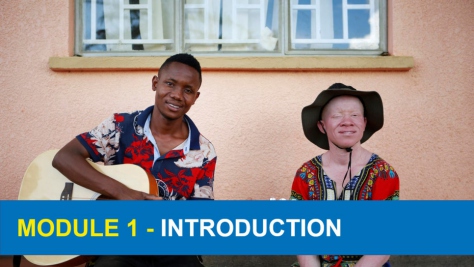About World Refugee Day 2008
On June 20, we celebrate World Refugee Day. This year, events around the world focus on the fundamental need for protection. For some, this means economic security; for others, protection is freedom from violence and persecution. On World Refugee Day, we turn our attention to the millions of refugees who live without material, social and legal protection.
Since its foundation in 1951, UNHCR has protected tens of millions of refugees. For us, protection consists of tangible improvements in the lives of forcibly displaced people - from the provision of food and shelter to support for those lacking legal status or those wishing to return to their home countries. On World Refugee Day, we commemorate this vital engagement.
Protection is also about raising awareness. We cannot protect refugees if their plight remains invisible. On World Refugee Day, we will highlight the universal nature of protection. Not only are refugees protected all around the globe, but the responsibility for protection is equally global.
Ultimately, protection is a challenge that knows no borders. Neither can it be left to a single agency to provide. On World Refugee Day, we are launching a global call for action. We want to promote engagement at the grassroots level, in local communities, workplaces and online. Only through a global network of supporters can we meet the manifold needs of protection.
How can you help?
Online social utilities provide excellent tools for advocacy. Become a fan on Facebook, support our cause and share our videos, photos and latest news with your friends. You can also find us on MySpace, YouTube and Flickr.
-

ES/2022/01 UNHCR Asylum Capacity Development Evaluation
1 Jun 2022 This document summarises the findings, conclusions and recommendations of the Independent Evaluation of UNHCR's Support for Strengthening National Asylum Systems. The overall purpose of the evaluation is to review how UNHCR has fulfilled its objective to support and strengthen the capacity of national asylum systems in the period 2015–2020 and thereby improve the quality of protection for persons of concern and the sustainability of the systems that support this. Attachments: Executive Summary, Evaluation Brief, Management Response and Annexes (.zip) -

Video Module 1
31 May 2022 -

Course evaluation
31 May 2022 -

Handout 1 - Video Transcript: Safak Pavey
31 May 2022 The handout contains the transcript of the video statement by Safak Pavey, former UNHCR colleague and member of the CRPD committee, on the importance of working with persons with disabilities in forced displacement. -

Saving Maternal and Newborn Lives in Refugee Situations - Evaluation Summary
31 May 2022 UNHCR implemented a three-year project (supported by the Bill and Melinda Gates Foundation) to reduce neonatal and maternal mortality and morbidity among refugees in Cameroon, Chad and Niger. The project targeted 772,000 refugees and focused on low-cost, high-impact interventions. This document provides a summary of the end of project evaluation. -

UNHCR Facilitators Guide - Working with Persons with Disabilities in Forced Displacement
31 May 2022 This Facilitator's Guide on Strengthening Protection of Persons with Disabilities in Forced Displacement supports UNHCR colleagues, partners and others in the field level to recognize protection concerns faced by persons with disabilities and identify different strategies to mitigate risks and promote the inclusion of persons with disabilities in UNHCR programming. -

Handout 0 - Organizing accessible workshops
31 May 2022 The document provides colleagues and partners with practical tips on organizing accessible and meaningful workshops and training for and with persons with disabilities. -

Handout 2 - Models of disability
31 May 2022 The handout for Module 2 Activity 2 of the Disability Inclusion Facilitator's Guide includes the definitions of the four models of disability: charity model, medical model, social model, and rights-based model. -

Handout 3 - Profile cards
31 May 2022 The Handout contains the individual profile cards to be used during Activity 1 of Module 3 of the Disability Inclusion Facilitator's Guide. Each profile card contains the information of a person of concern with disabilities.

